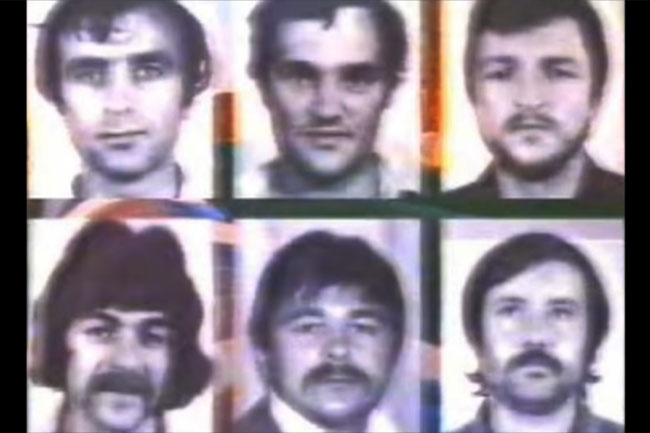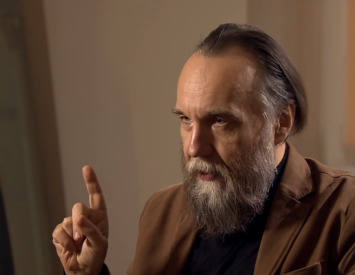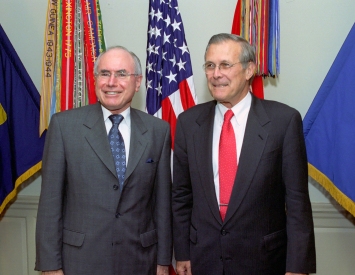In order to find those who influence Right-wing terrorists, it's important to consider historical idealists and revolutionaries, writes Branko Miletic.
LAST SUNDAY marked exactly 12 months when Australian Brenton Tarrant allegedly killed 51 people in an attack on two mosques during Friday prayer in the New Zealand city of Christchurch.
However, following New Zealand’s worst mass killing, and more than 365 days of introspection, the authorities still don’t get it.
That’s quite depressing considering the alleged Australian shooter left plenty of clues strewn all over the internet, his home, his car and on his own person.
Specifically, Tarrant’s online manifesto was a gold mine of information. Apart from being a very pale imitation of the weighty 1,518-page Anders Breivik version nor having the intellectual gravitas of the Unabomber’s writings, Tarrant was hardly shy as to who influenced him.
But it is fascinating to see the human predilection for not seeing the wood for the trees in action.
Tarrant even played the music that was the theme song for those behind the global anti-Muslim violence, had his AR-15 assault rifle adorned with the myths and legends in the alphabet of those who claim special “grievances” from the Muslim world, even though these so-called grievances are older than six centuries.
He also made numerous references to so-called “Christian military heroes who fought Islam” — most of which are half-myths and historical exaggerations which at times have also been promoted by indicted war criminals.
Recently, I commented to a colleague that if journalists kept reporting on toothless, neck-tattooed beer-swilling, Strine-speaking bogans as the actual cause of Right-wing terror, they’ll “end up in a rabbit hole one day, knee-deep in empty VB cans and dirty bongs”.
“But that’s who our national security people are investigating,” retorted the scribe. It was like being told our security apparatus is being run by characters from the movie Dumb and Dumber.
This legend of the seemingly self-replicating “local yokel terrorist” has become the latest urban myth swallowed up by our media and security elite and currently promoted by the likes of Kristina Keneally, Labor's Home Affairs spokeswoman who wants to set up China-style terrorist lists.
Maybe Kenneally’s next move will be calling for the opening of nationwide “re-education camps”.
Ironically, it was Tarrant who wrote that his favourite government in the world was the Peoples' Republic of China.
Or we could blame the internet.
Mubaraz Ahmed, writing for the Tony Blair Institute for Global Change, said:
There should be no blind-spots or places to hide. Violating content and accounts should be investigated and addressed regardless of language or territory. If a platform, small or large, seeks to operate in a certain linguistic or geographic context then it must be able to demonstrate the ability to identify illegal activity, detect policy violations and enforce community standards. That is the responsible thing to do.
Really? It’s all about the internet? If that’s the case, why don’t we just shut down the 'net and then there will be eternal peace in the world?
Not exactly. What Ahmed and others fail to grasp is the fact that those who influenced Tarrant (and Breivik) have more in common with 19th-century Russian anarchist Peter Kropotkin than Facebook founder Mark Zuckerberg.
As Kropotkin said:
“In the long run, the practice of solidarity proves much more advantageous to the species than the development of individuals endowed with predatory inclinations.”
For the savvy and well-connected influencers of Tarrant and Breivik, this “networking” holds far more strategic value as it collectively provides much more bang for their terrorist buck.
Like with four of the seven assassins of Archduke Ferdinand in 1914 who knew nothing of the plot, both Tarrant and Breivik, too, were “networked” in order to become useful idiots – albeit very deadly ones – for those really behind the action.
Whether they knew it or not, the two now-infamous Right-wing terrorists were singing from the same hymn sheet as another Russian anarchist, Mikhail Bakunin, who wrote:
‘We must spread our principles, not with words but with deeds, for this is the most popular, the most potent, and the most irresistible form of propaganda.’
In other words, the famous “propaganda of the deed” is what matters rather than the obsession with electrons.
In the 1800s, when anarchist violence was shaking Russia and threatened the stability of its empire to the core, it wasn’t due to its social media coverage getting plenty of “likes” or “shares” as news was transmitted mainly by word of mouth, considering the overall literacy rate of the Russian Empire at the time was a paltry 24 per cent.
Writing in The Weekend Australian, Paul Maley noted that in his manifesto, ‘The Great Replacement’, Tarrant also promoted “propaganda of the deed”:
‘Survival was a better alternative to death in order to spread my ideals by media coverage and deplete the resources from the state by my own imprisonment.’
Italian revolutionary Carlo Pisacane wrote in his ‘Political Testament’ that ‘ideas spring from deeds and not the other way around’ and, as such, the influencers of the carnage in places like Oslo and Christchurch are trying to use deeds of others to unwittingly help push ideas which they hope will ultimately benefit them in their centuries-old struggle with a long-gone enemy.
One thing that Mubaraz Ahmed is correct about is when he says:
‘But it is important that a comprehensive and coordinated approach is taken. Impulsive, short-term and reactionary policymaking may bring short-term wins but could have serious long-term implications.’
As to who are these “hidden in plain sight” groups that have caused so much misery over the past 30 years, the answer to that question is simple: all you have to do is open your eyes.
But perhaps before that, you will need to drop all your prejudices and refrain from all reactionism. Otherwise, you may as well get used to wading through a sea of empty VB cans and dirty bongs.
Branko Miletic is a journalist, editor, historian and author who has written extensively on the wars in the Balkans and post-Yugoslavia politics for the past 20 years. You can follow Branko on Twitter @journovox9.
 This work is licensed under a Creative Commons Attribution-NonCommercial-NoDerivs 3.0 Australia License
This work is licensed under a Creative Commons Attribution-NonCommercial-NoDerivs 3.0 Australia License
Support independent journalism Subscribe to IA.












